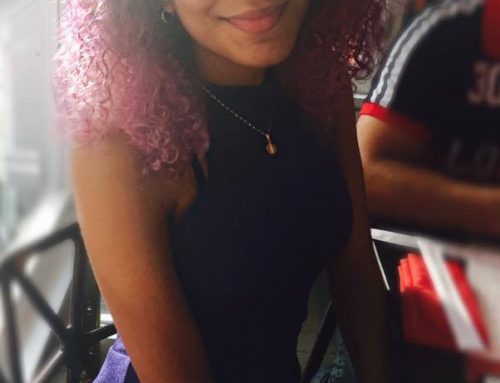test heading
(ganked from the Smithsonian Institution)
So, internships! It turns out that people want them, and then they e-mail us about their internship-related desires.
I personally have nothing but good things to say about internships. Without the two amazing internships I had — one at Red Hen Press, the other with Dark Horse Comics — I would not be nearly as useful at my current job as I am, and I would definitely have been completely lost upon first getting to New York City and starting my job at First Second.
Internships are especially great in the publishing industry because there’s a whole lot of tedious and aggravating yet absolutely essential work to do that is relatively simple and easy to learn — which means that interns are actually part of what makes the publishing company run! That’s kind of crazy.
I found my publishing-related internships specifically helpful in that they made me realize that I didn’t really want to be an editor — which is what I had previously believed. It turns out that editing is difficult and detail-oriented and there’s a whole lot of scheduling and organization involved! I’m still not sure how our editors do it.
In short: internships, I recommend them.
Now for the longer part:
How To Get an Internship
(in five easy steps that in no way guarantee any kind of internship for you whatsoever, because there are still hundreds if not thousands of other college students who ALSO would like that same exact internship, and yes, we understand the frustration. Sorry.)
Know When to Apply. You know when is a good time to be applying for an internship? Now. For a fall internship, that is — if you’re trying to get a summer internship at this point, you’re pretty much out of luck with the publishing industry. Publishers tend to organize their internships on a semester/seasonal schedule, which means that they’ll have winter/spring, summer, and fall internship opportunities. Applying at the beginning of the previous season is your best bet — which means September for winter/spring internships, January for summer internships, and May/June for fall internships. If you don’t stick the timing on these things, you could be the best-ever intern possibility we’ve seen in our lives, but we’re sorry — we’ve given the job to someone else already.
Know the Rules. Lots of publishers are very specific about the kinds of internships they offer, and who those internship opportunities are available to. For example, we only give internships for college credit. If you’re not in college, you’re out of luck. Interns also need to be local. Knowing basic information like this about any publisher that you’re applying to for an internship helps you seem like a relatively self-assured young person who knows what’s up. (Hint: we like to have interns who are self-assured people who know what’s up.) If this information isn’t available on a publisher’s website, e-mail them and ask.
Know What You’re Talking About. You know what makes someone really eager to hire you? When you know basic information about them! What kind of books do they publish? Can you name specific titles? Have you read at least one of them? Did you really like at least one of them? Include a sentence or two about this in your introductory e-mail. Try to call out a relatively recent book; e-mailing Penguin to say, ‘I’m such a fan of Jane Austen, it’s amazing that you publish her,’ is kind of silly unless you’re specifically applying to work with their classics line. If you’re applying for an internship in a publisher with a specialty — for example, someone who publishes children’s books — please mention the fact that you specifically love and read children’s books (now, not while you were a small child).
Be Willing To Do Anything. So you look at your favorite publisher’s website. They’ve got an internship opening! But — oh, no — it’s in marketing, and you know that your future is in editorial! What should you do? Well, we definitely don’t recommend that you do a job that you think you’ll hate with the passion of a thousand fiery suns. But if you can look at a job description and think, ‘this sounds like it might be interesting,’ try applying. Interns are not meant to have already dedicated their lives to their careers — they’re supposed to be figuring out what’s best for them. (Hint: if you do think a not-your-dream-internship might be interesting, think up some specific reasons why it’s interesting and put them in your cover letter, ie, ‘I’ve always loved books and I want to know more about how they’re made, so I’m applying for this job in production.’)
Communicate, Possibly to Excess. Apply early to the internship of your choice; follow up with the person you’ve e-mailed in a few weeks if you don’t hear from them. Try e-mailing the publisher’s Human Resources department directly about your desire for an internship. If you get called for an interview, follow up by e-mail to say it was good to meet your interviewer. Maybe applying to just a single internship is a bit of gamble; you might try four or five or fifteen or sixteen.
If you’re specifically looking for an internship with First Second, here are some things to keep in mind:
- First Second does not hire a lot of interns. The reason why we do not hire a lot of interns is because we have no space for them in our building. Even if you are the best-ever intern-to-be, if we have already hired someone, we will physically not be able to find you any place to sit. Or a computer. Etc. Therefore: apply early, endeavor to have enthusiasm whilst you’re applying.
- First Second shares our interns with our parent company, Macmillan Children’s. They publish — you will be shocked to learn — children’s books. If you’re not interested in children’s books as well as comics, I’m sorry, but this isn’t the best opportunity for you.
- The MacKids marketing department hires one intern a semester to aid the whole department. On the editorial side, First Second shares a single intern every semester with Roaring Brook Press and Farrar Straus Giroux Books for Young Readers. This means: if you e-mail us applying for an internship with First Second, what you are applying for is an internship where you’ll be working with comics at most 20% of the time, and children’s books the rest of the time. Again, if you’re not interested in kids books, this isn’t the best place for you.
- We only hire interns who receive college credit for their interning with us. This means current students — if you’ve just graduated, I’m afraid we can’t help.
- A whole lot of what an intern is responsible for is stuff that you need to be in the office for. First Second is based in New York City; please apply for an internship with us only if you are able to get to our office for it on a daily basis for the internship.
- Intern tasks can include: lots and lots of lots of mailing things (books and checks and more books and more books and mail we get for authors and original art and proofs and print-outs and sometimes statuary etc.), scanning original art, doing research, reading submissions, making charts, checking copy-edits, compiling data, ordering and shelving books from our warehouse, helping us prepare for events, etc.
- Intern tasks do not include: writing/illustrating graphic novels for us. If you’re an aspiring writer/illustrator, that’s great! But: perhaps you’ll want to look for an internship that involves either writing or illustrating and leave publishing internships to people who are aspiring publishers.
And last: good luck!





